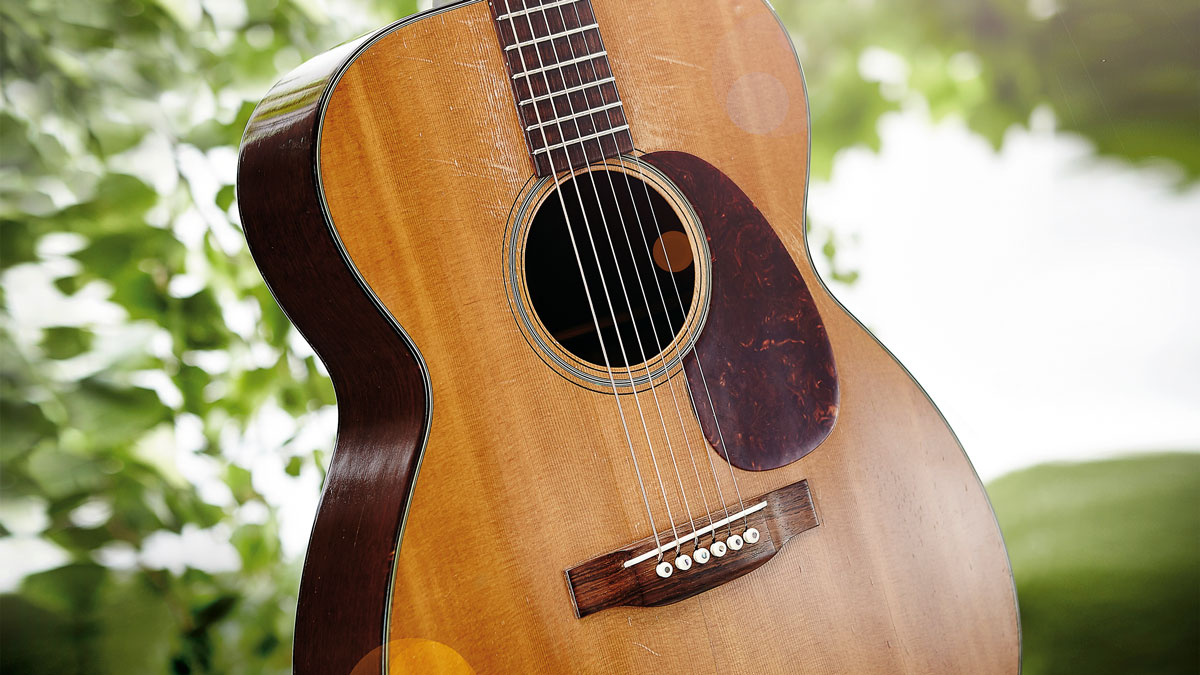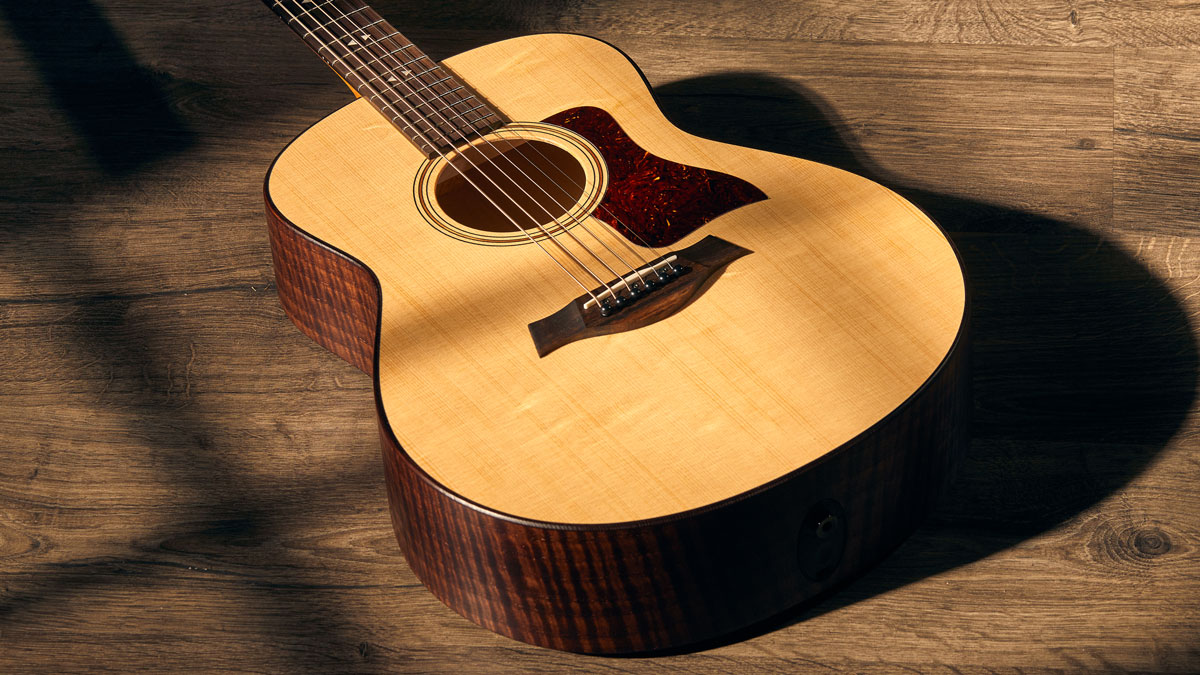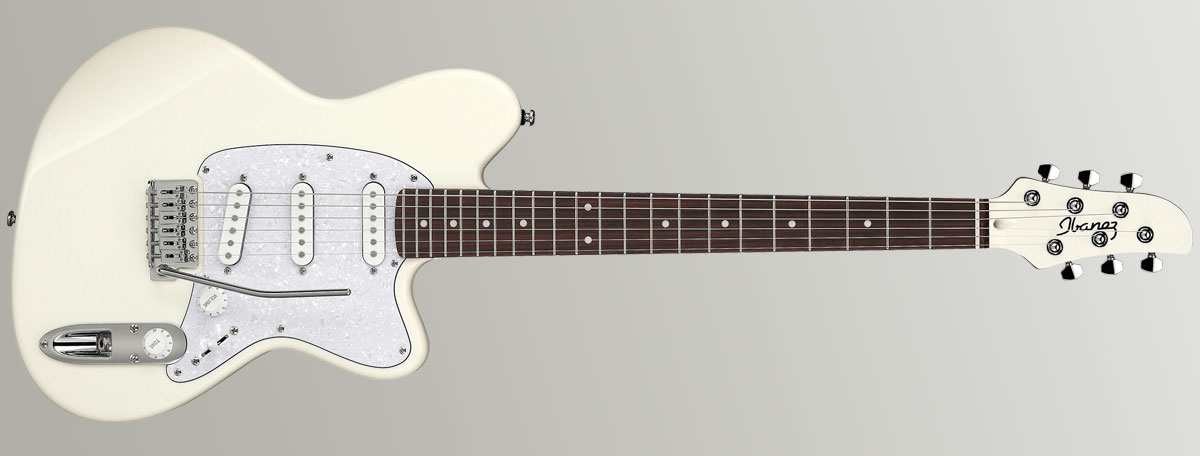
Wood is one of the Earth’s most precious natural resources, and over 309 species have been used to build some of the best-sounding – and looking – instruments over centuries of guitar-building. Millions of guitars have been produced during that time – so it’s no surprise that Mother Nature’s natural resources are dwindling while manufacturing carbon footprints rise.
Take Brazilian rosewood. Many builders in the instrument and furniture manufacturing industries relied on this wood because of its dense, warm tone, finish, and beauty.
Companies like Martin Guitars used it until the 1950s, when the Brazilian government implemented regulations to cut back on how many trees were imported.
“Everyone worships Brazilian rosewood because of its distinct tone. Martin built guitars with it until the late ‘50s when the Brazilian government concluded that too many trees were being cut down,” says C.F. Martin IV, Executive Chairman for Martin Guitars.
“They put an embargo on the species, and many companies struggled with transitioning to using new species of wood that would give the same warm tone, but we were able to pivot to Indian rosewood rather quickly.”
Indian rosewood remains a popular wood to build with because of its versatility and expansive frequency range at both ends of the tone spectrum. While this precious wood is native to India and Indonesia, it is also grown in countries such as Nigeria, Kenya and the Philippines – and this is the beginning of the environmental and societal impact of guitar building.
Be aware of your impact

The history of sourcing from international communities often leaves a narrative of gaps in marginalized people's economic, societal, and relational presence – large corporations buy land and resources, leaving native communities with environmental implications.
But with the world entering the next “green movement” wave, how can instrument manufacturing companies build reciprocal relationships with marginalized communities and Mother Nature?
Every cog in the wheel is necessary to work towards the big picture. That’s why accountable relationship-building is vital to companies such as Taylor Guitars, who recruited Director of Natural Resource Sustainability, Scott Paul, in 2016.
Co-founder Bob Taylor created this new position to tackle the intersections of manufacturing and sustainability. With a long career in conservation, Paul has been at the helm of Taylor’s innovative sustainability initiatives.
“The average acoustic guitar comprises four or five different species; some tropical, some temperate, each selected to perform a specific mechanical function as a part,” explains Paul.
“We buy from sources worldwide, often from small companies or communities far from a country’s capital city. We regularly visit these places to establish direct, long-term relationships that last many decades.
“We work to establish business relationships with the understanding that a supplier’s prosperity is important to us, as their strength offers holistic benefit to them, their communities, and the resources under their care as much as the relationship benefits our employees and direct communities.”
“At Taylor Guitars, we are guided by the saying, 'Sustainability is a journey, not a destination,' he concludes. “It conveys that there’s always more to do.
“If someone thinks they are a 'sustainable company' or that they have a 'sustainable product' then I have a lot of questions. I suspect any such statement originated in their marketing department and not from anyone who works on, or fully understands, sustainability issues.”
Where do we go from here?

So, how can companies build more awareness, community relationships, and innovative methods to cultivate the next generation of sustainable tone?
Over recent decades, brands have begun answering these questions by implementing sustainable practices and community relationships.
“Ibanez prioritizes using abundant wood species such as nyatoh, American basswood and jatoba because they are environmentally friendly and allow us to maintain a large selection of affordable, high-quality instruments,” says Scott Miller, Communications and Marketing Specialist for Hoshino Brands (home to Ibanez and Tama).
Sustainable woods are essential to our mission of making quality guitars available to every player
Scott Miller, Hoshino Brands
“These sustainable woods are essential to our mission of making quality guitars available to every player.”
It’s not just guitar builders that are taking strides in sustainability. Pickup manufacturers are playing their part, too.
“Products in the music industry don’t always lend themselves to sustainability, but EMG has found innovative ways to reduce waste,” explains Allison Turner, VP of North American Sales at EMG Pickups.
“We can reuse materials other manufacturers typically scrap by doing our own bobbins and plastic cover caps injection moldings. We grind down leftover plastics and reuse the material. We also recycle copper and other metals at a local recycling facility.”
Raising awareness

These sustainability efforts contribute to the protection of our planet. But finding ways to build community partnerships is essential to educate the next generation of guitar builders on why building green is important.
Lindsay Love-Bivens, Taylor Guitars’ Artist and Community Relations Manager, works on initiatives that spread the message of guitar playing far and wide – and that includes awareness of sustainable initiatives.
“The guitar is a diverse instrument. It has a prominent place in most styles of music, and because of that, our customer demographic is extremely diverse,” she explains. “So, we are very intentional about having a variety of genres, ethnicities, and genders represented in our marketing.
We take sustainability seriously. So, we talk about it… We must use every opportunity we have to try to explain why we do what we do
Scott Paul, Taylor Guitars
“One of the things we do is work with local high schools by bringing in our guitar-building program, Keep WoodShop Alive, a program Bob Taylor started over 20 years ago with nearby schools to find ways to make wood shopping exciting and appealing to students.
“20 years later, we are still going strong. Throughout the year, we donate over 50 guitars to music and arts nonprofits and organizations nationwide. Most of those organizations heavily emphasize providing music and arts access to underserved communities.”
Taylor Guitars has added to this charge by opening honest and clear channels of communication with their customers. The company magazine Wood&Steel regularly showcases initiatives like upcycling and wood sourcing to produce the final products that guitarists enjoy.
“The pursuit of sustainability is important to our company, says Scott Paul. “We take it seriously. So, we talk about it. Some people care. Some people might not as much. But we must use every opportunity we have to try to explain why we do what we do.”
Community partnerships

Community partnerships with countries that supply wood for guitar-building are another integral step on the sustainability ladder. Martin Guitars has a full-circle approach to sustainability programs.
“Along the way, we've helped invest in the international communities we work with. One of the ways we reinvest is by sponsoring greenhouse programs where saplings are planted to replenish what is being sourced,” C.F. Martin IV shares.
“These plants are often fruit and nut trees that produce food and a source of income while native communities wait for the trees to mature. Programs like this provide short and longterm solutions to reducing carbon footprints, harvesting food, and establishing relationships – creating a full circle.”
Community relationships can be supported in other ways, too. PRS Guitars’ approach is rooted in dedicating portions of its profit to providing the next generation of guitar builders and players with the tools they need to advance the evolution of tone, playability, and beauty.
The firm supports “on the ground” entities that educate, train and inspire youth and adults to think big. Their support uplifts organizations such as The National Black Musicians Coalition, The International Music Summit and The Chesapeake Bay Environmental Center.
Through it all, education, community, and the environment are at the crux of a sustainable future. Necessity breeds innovation, and innovation is necessary for the future of building green.







